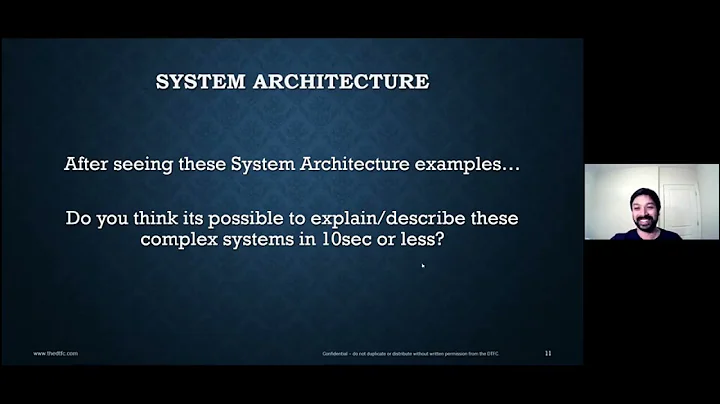Unlocking the Bible's Story: Understanding the 8 Covenants that Shape It All
Table of Contents:
- Introduction
- Understanding the Concept of Covenants
2.1 What is a Covenant?
2.2 Different Types of Covenants in the Bible
2.3 How Covenants Were Made in Bible Days
- Major Covenants in the Bible
3.1 The Edenic Covenant
3.2 The Adamic Covenant
3.3 The Noahic Covenant
3.4 The Abrahamic Covenant
3.5 The Mosaic Covenant
3.6 The Palestinian Covenant
3.7 The Davidic Covenant
3.8 The New Covenant
- Jesus as the Ultimate Fulfillment of the Covenants
- Conclusion
Understanding the Concept of Covenants
In this article, we will delve into the concept of covenants in the Bible and explore their significance in understanding the narrative of God's relationship with His people. Covenants play a vital role in weaving the story of the Bible together, highlighting the conditions and promises established by God. We will explore the different types of covenants, how they were made in biblical days, and examine the major covenants found in the Bible. Additionally, we will discuss how Jesus serves as the ultimate fulfillment of these covenants, bringing redemption and restoration to mankind.
What is a Covenant?
A covenant, according to theologian Wayne Grudem, is an unchangeable divinely imposed legal agreement between God and man. It stipulates the conditions of their relationship, with God establishing the terms without negotiation from man. Each covenant is unchangeable and holds its own set of conditions.
Different Types of Covenants in the Bible
There are two main types of covenants found in the Bible: bilateral (conditional) covenants and unilateral (unconditional) covenants. Bilateral covenants involve an agreement where both parties have responsibilities to fulfill. If either party fails to meet the stipulations, the covenant becomes null and void. On the other hand, unilateral covenants are promises made by God, often without any conditions attached. These covenants are solely dependent on God's faithfulness, regardless of man's actions.
How Covenants Were Made in Bible Days
In biblical times, covenants were made through a ritual of cutting an animal into two equal parts. The participants would then pass between the divided pieces, symbolizing their commitment to fulfill the covenant. If either party failed to uphold their part, it was understood that they would suffer consequences similar to the fate of the slain animal.
Major Covenants in the Bible
The Bible contains several major covenants that form the foundation of God's relationship with His people. Understanding these covenants is crucial to grasp the overarching narrative of the Bible and its significance. Let's explore these covenants one by one:
The Edenic Covenant
Key Word: To Rule
The Edenic Covenant, found in Genesis 2:15-16, grants Adam dominion over all creation. God commands him not to eat from the tree in the middle of the garden, warning of the consequences of disobedience. This bilateral covenant is conditioned upon Adam and Eve's obedience. However, they broke the covenant by eating from the forbidden tree, leading to its nullification.
The Adamic Covenant
Key Word: Redemption
Following Adam and Eve's disobedience, God establishes the Adamic Covenant as a means of redeeming mankind. In Genesis 3:15, God promises that the offspring of the woman (Jesus) will ultimately crush the head of the serpent (Satan), symbolizing victory over sin and death. The Adamic Covenant is a unilateral covenant, highlighting God's commitment to redeem mankind, regardless of their faithfulness.
The Noahic Covenant
Key Word: Restraint
As humanity's wickedness increased, God exercised restraint and decided to flood the earth. Noah, a righteous man, and his family were spared, and after the flood, God made a covenant with Noah. This unilateral covenant ensures that God will never destroy the earth by flood again. Despite mankind's potential wickedness, God remains faithful to this covenant.
The Abrahamic Covenant
Key Word: Restore
The Abrahamic Covenant is a pivotal covenant that references back to the Adamic Covenant of redemption. God chose Abraham as the starting point of the restoration process. In Genesis 12:1-3, God promises Abraham three things: land, descendants, and blessings. This unilateral covenant serves as the foundation for future covenants and highlights the regenerative nature of God's plan.
The Mosaic Covenant
Key Word: Reveal
The Mosaic Covenant, also known as the Old Covenant, focused on revealing God's standard of holiness to the Israelites through the Ten Commandments and various laws. It highlighted people's inability to uphold these laws perfectly, leading to an awareness of their need for a savior. The Mosaic Covenant is a bilateral covenant, requiring obedience from the people to receive God's blessings.
The Palestinian Covenant
Key Word: Return
The Palestinian Covenant, an extension of the Abrahamic Covenant, emphasizes God's call for His people to return to Him and repent. It promises the regathering of scattered Israelites and the restoration of the land. Although this covenant is yet to be fully fulfilled, it serves as a reminder of God's faithfulness and commitment to His chosen people.
The Davidic Covenant
Key Word: Reign
The Davidic Covenant solidifies God's promise to establish David's throne and lineage forever. It assures that his kingdom will endure, furthering the restoration process. Jesus, as the Son of David, fulfills this covenant by reigning eternally and establishing a kingdom that will never end.
The New Covenant
Key Word: Relationship
The New Covenant represents a significant shift in God's relationship with His people. Jeremiah 31:31-34 describes this covenant, stating that God will put His law within the hearts of His people, offering forgiveness, regeneration, and a close relationship with Him. Jesus, in His death and resurrection, ushered in the New Covenant, providing salvation and the indwelling of the Holy Spirit.
Jesus as the Ultimate Fulfillment of the Covenants
Jesus serves as the ultimate fulfillment of all the covenants made by God. He embodies the redemption promised in the Adamic Covenant, fulfills the requirements of the Mosaic Covenant through His perfect obedience, and reigns as the eternal King, fulfilling the Davidic Covenant. Through His sacrifice and resurrection, Jesus establishes the New Covenant, offering forgiveness, regeneration, and an intimate relationship with God for all who believe in Him. Jesus's fulfillment of the covenants highlights the continuity and faithfulness of God's plan throughout history.
Conclusion
In this article, we explored the concept of covenants in the Bible, understanding their different types and how they were made in biblical times. We examined the major covenants found in the Bible, recognizing their significance in God's redemptive plan. Moreover, we discussed Jesus as the ultimate fulfillment of these covenants, emphasizing His role in bringing salvation, restoration, and relationship with God. The covenants reveal God's unwavering faithfulness and love for His people, inviting us into a deeper understanding of His plan for humanity.
✨ Highlights:
- Covenants serve as essential building blocks in understanding God's relationship with His people throughout the Bible.
- Two main types of covenants exist: bilateral (conditional) and unilateral (unconditional) covenants.
- Covenant-making in biblical times involved the ritualistic cutting of animals and passing between the divided pieces, symbolizing commitment.
- The major covenants in the Bible are the Edenic Covenant, Adamic Covenant, Noahic Covenant, Abrahamic Covenant, Mosaic Covenant, Palestinian Covenant, Davidic Covenant, and New Covenant.
- Jesus fulfills all the covenants, bringing redemption, restoration, and a close relationship with God.
- Understanding the covenants enhances our comprehension of the Bible's overarching narrative and reveals God's faithfulness throughout history.
FAQ:
Q: Did Jesus establish a new covenant?
A: Yes, Jesus ushered in the New Covenant through His death and resurrection, offering forgiveness, regeneration, and a close relationship with God.
Q: How many major covenants are there in the Bible?
A: There are eight major covenants in the Bible: Edenic, Adamic, Noahic, Abrahamic, Mosaic, Palestinian, Davidic, and New Covenants.
Q: Were covenants made unilaterally or bilaterally?
A: Covenants in the Bible can be both unilateral (unconditional) and bilateral (conditional), depending on the specific covenant's nature.
Q: What does Jesus's fulfillment of the covenants signify?
A: Jesus's fulfillment of the covenants reveals God's faithfulness and demonstrates His plan throughout history. Jesus brings redemption, restoration, and a close relationship with God for all who believe in Him.







